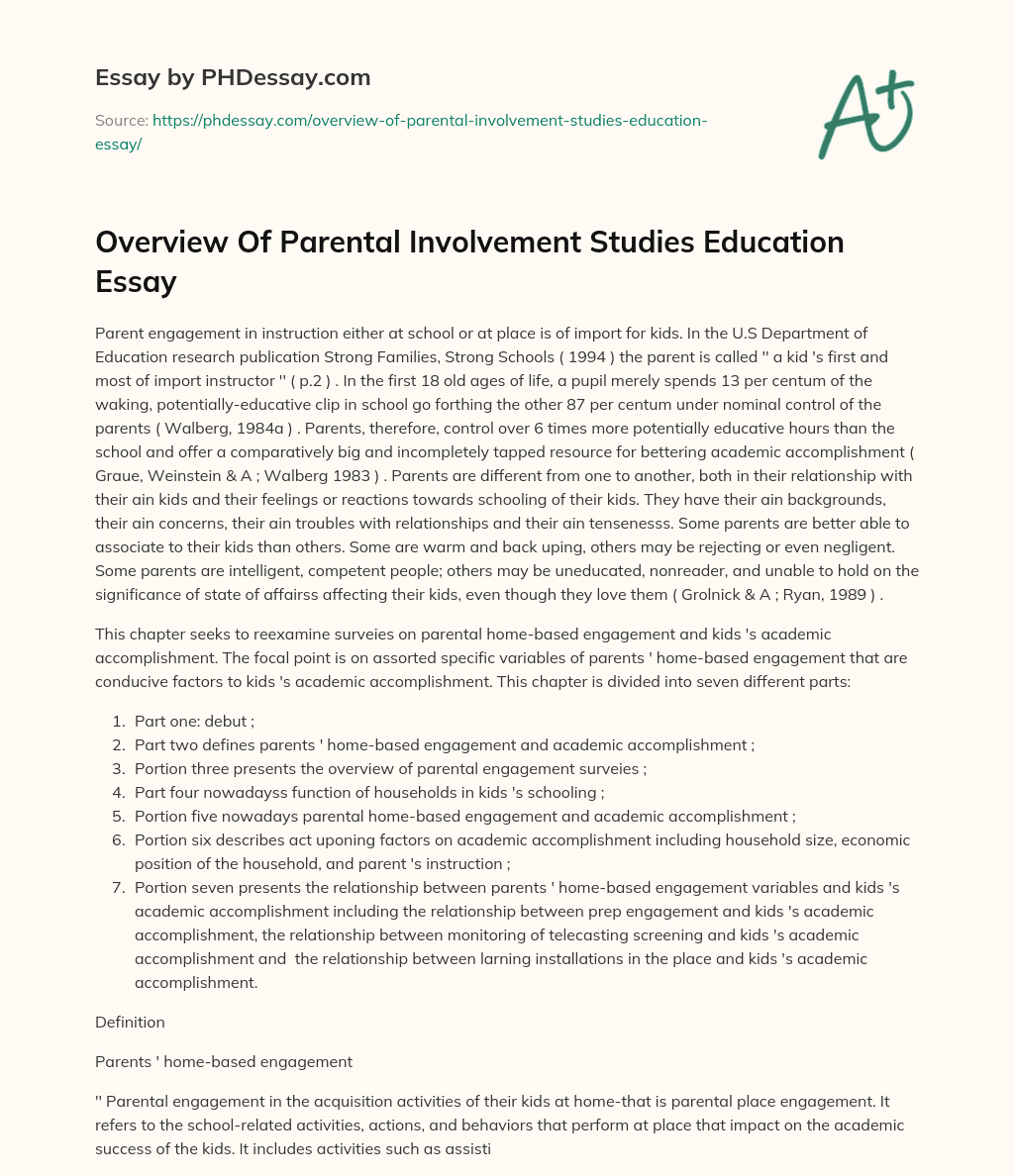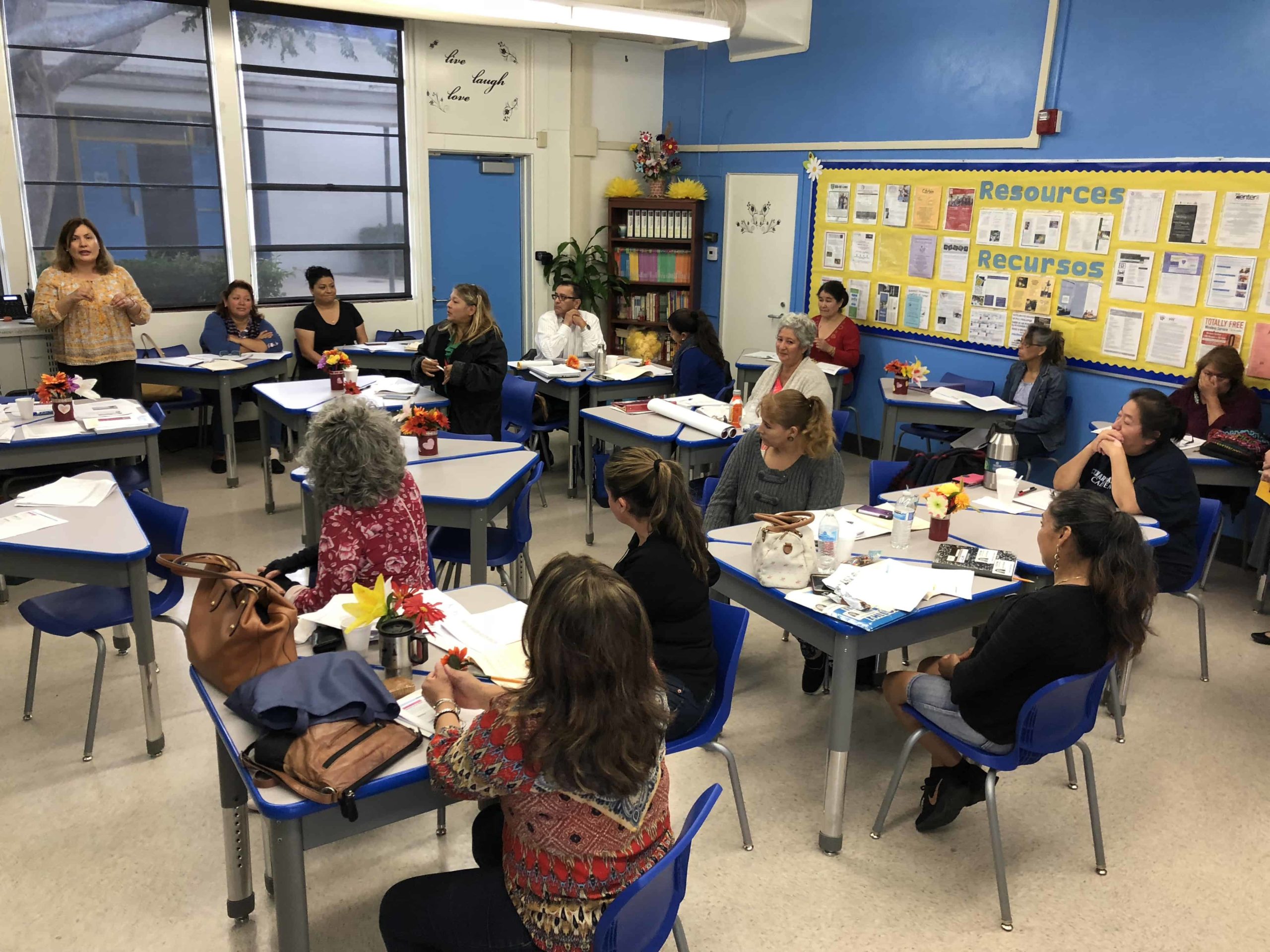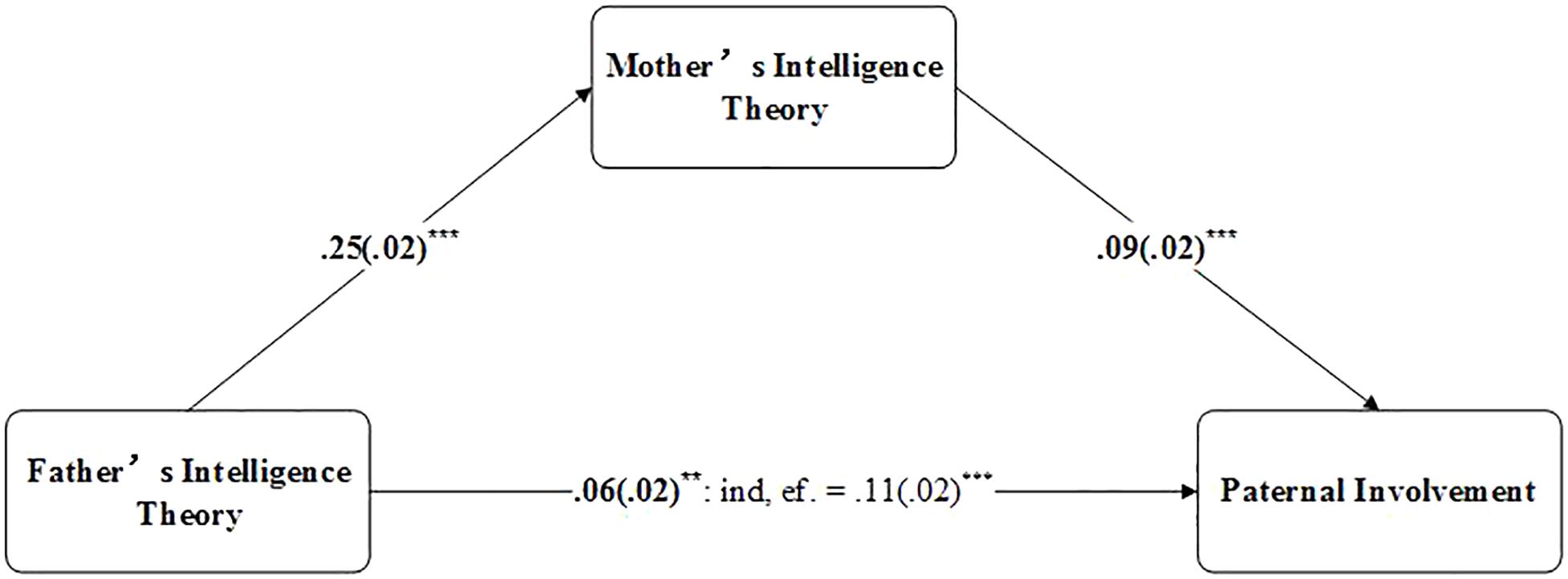Parental involvement in education refers to the active participation of parents in their child's education process. It involves both the parents' involvement in their child's learning at home and their participation in school activities and decision-making. Parental involvement is a crucial aspect of a child's education, as it has been shown to have a positive impact on a child's academic performance and overall development.
There are many different ways that parents can be involved in their child's education. At home, parents can support their child's learning by setting aside dedicated time for homework, creating a positive and supportive learning environment, and encouraging a love of learning. They can also help their child develop important skills, such as time management and organization, by setting clear expectations and providing structure and support.
In school, parents can participate in a variety of activities and decision-making processes. They can attend parent-teacher conferences, volunteer in the classroom, and serve on school committees. They can also advocate for their child's needs and collaborate with teachers to support their child's learning.
Parental involvement is important for a number of reasons. Firstly, it helps to create a positive relationship between the parent and child, which is crucial for the child's overall development and well-being. When parents are involved in their child's education, the child is more likely to feel supported and motivated, which can lead to improved academic performance.
Secondly, parental involvement can also help to bridge the gap between home and school. When parents are actively involved in their child's education, they are more likely to understand and support the child's learning goals and objectives. This can help to create a more cohesive and collaborative learning environment, which is beneficial for both the child and the school.
Finally, parental involvement can also help to improve the overall quality of education. When parents are involved in the decision-making process, they can provide valuable input and perspective on what is and is not working in the school. This can help to inform school policies and practices, leading to a more effective and efficient educational system.
In conclusion, parental involvement in education is a crucial aspect of a child's education and overall development. It involves both the parents' involvement in their child's learning at home and their participation in school activities and decision-making. Parental involvement has been shown to have a positive impact on a child's academic performance and overall development, and it is important for creating a positive relationship between the parent and child, bridging the gap between home and school, and improving the overall quality of education.






